The part of the camp that I stay and eat at is a tent that houses the activists from the Mexican state of Nayarit. I went there after being invited by Salvador.
I met Salvador while walking around the AMLO camp at Zolaco my first day here. He was handing out newspapers for his party the PRD. He made contact by asking me whether I was from the United States. And Although I could not confirm that, I told him that right now I am from Douglas, AZ. Ah Dooglas, he recognized it, con los wetbacks, eh? Salvador is one of few here who speak a little bit of English, and he hopes to learn enough to be a translator for his party one day. He is very patient and so whenever my Spanish and his English knowledge are insufficient to make enough sense for the other person to understand, we use hands and feet and my electronic dictionary.
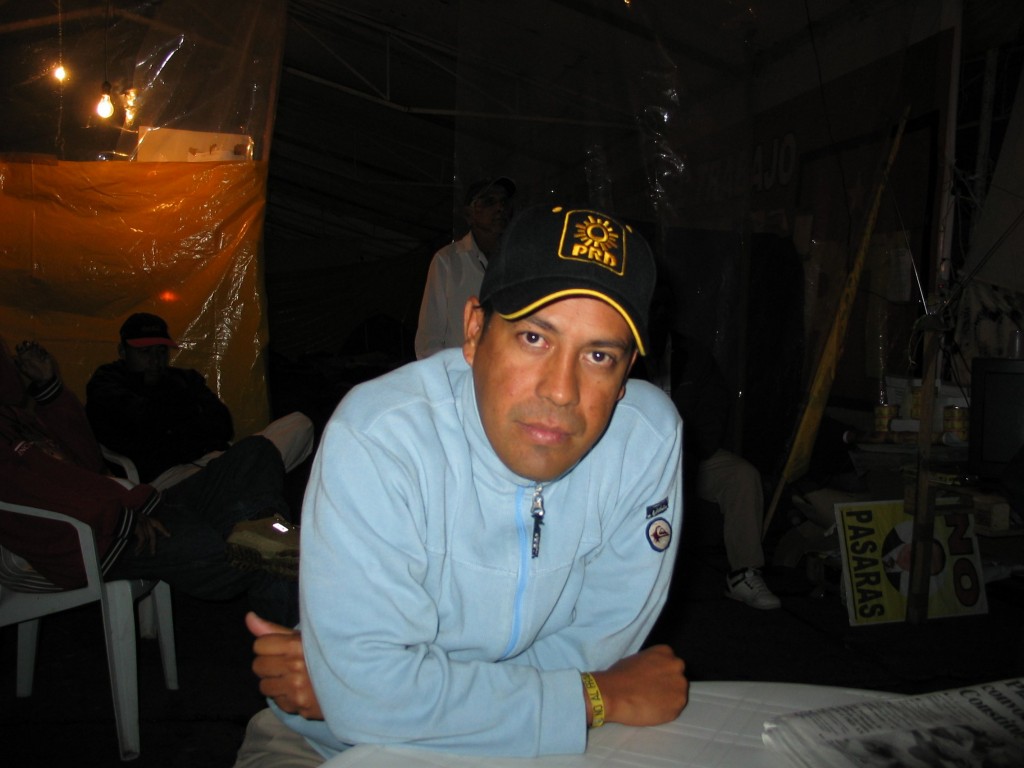
Salvador had been living in Arizona himself until recently, but now he is here with his local PRD group from Nayarit together with 50 other activists from his state who have been at the camp for the past 37 days. He was the one who explained the concept of the democratic national convention on September 16th to me. He hopes it will gather 1 million delegates elected by neighborhoods from all across gather in Mexico city. Salvador also hopes that the outcome will be a written agreement on policies and that AMLO will be elected as president of the convention. And I really, really hope that instead of paying taxes to the official Calderon secretary, all we who don’t believe in this government will instead pay our taxes to the AMLO secretary.
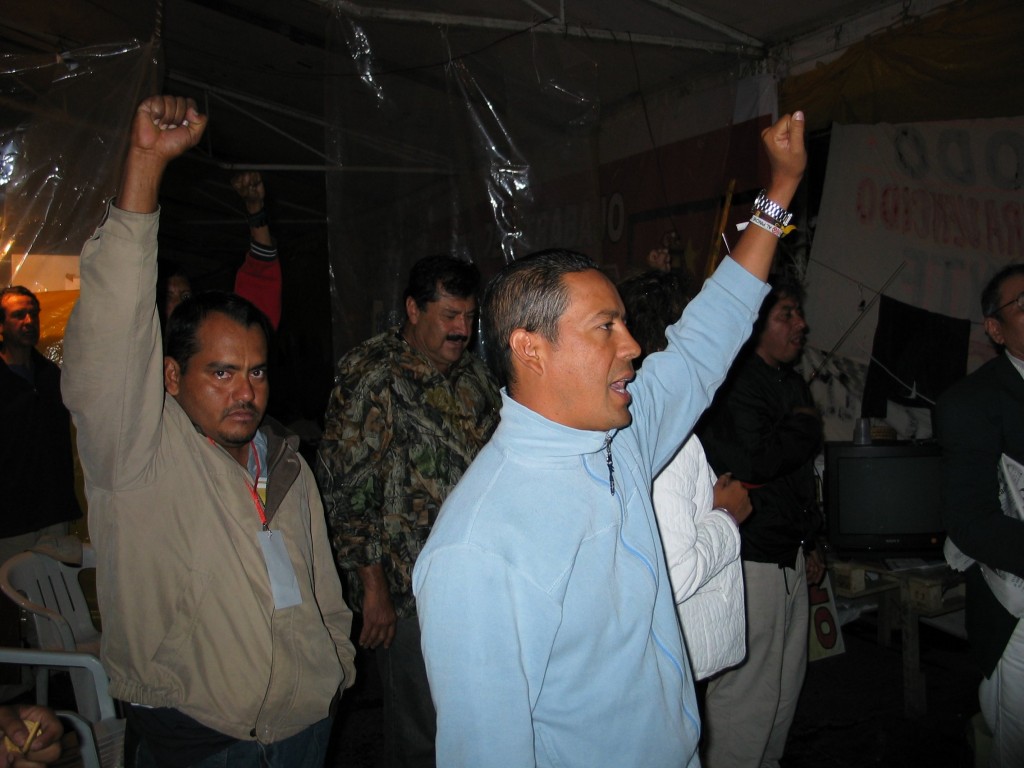
Salvador was also eager to tell his story although he is quite busy, but last night he told me about him, shortly before the rain started falling and AMLO gave his daily speech. So here is his story as he told it to me:
Salvador was born in Nayarit, as a son of a post office worker. His mother is still alive and lives on the pension she collects through her husband’s pension plan. Salvador went to school in his home town through the primaria and segundaria. At age fifteen he then moved on to the state of Jalisco to study mechanics for three years. He wanted to continue schooling after that, and so he moved on to the town of Mazathlan, Sinaloha to study engineering. However money was scarce, and so after two years he had to give up on his plans of finishing his studies. Instead he chose to go to the United States to work.
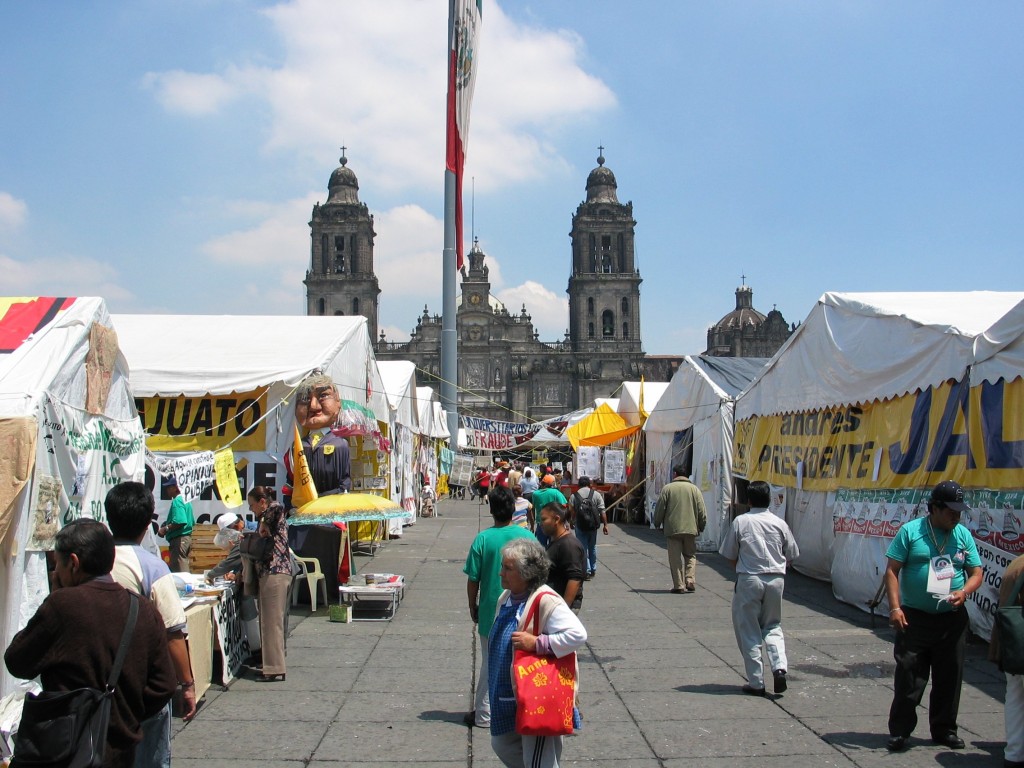
Did you have a visa for the United States back then?
No, a visa? No, back then [1989] it was easy to cross the line. You could just walk across to the left or the right of the border station. I told all my friends to come to the United States it was only 500$. Now it’s more more difficult [due to various extensions of the border fencce] and more expensive 1000$.
One in the United States, the twenty year old former engineering student Salvador found work as a janitor in the kitchen of the Sheraton Hotel in San Diego, CA and he held that job for two years. While he was doing good in the beginning, over time he had more and more trouble with the law.
Salvador mainly blames that on the friends he made: They were using marijuana, doing alcohol,… And also Salvador started taking drugs. It changed his life and for the next few years, he found dealing drugs as well as car and house burglaries to be the way for him to advance economically. A side effect was that he had to get involved with street gangs and also with the police: I have been sitting in five different jails in the US — and that is also why Salvador does not expect ever to be eligible for a visa to the US.
When he was really down one day, a friend of his who he still had outside the drug culture, asked him to move away from it all. Salvador ended up in the christian rehabilitation center Victory Outreach, and to this day he believes that it was they who helped him out of the drugs and into Christianity. Getting out of problems himself, he wanted to help others as well and joined a local human rights group.
Not long after, he decided to head back home to Mexico to try his luck there. In 1997 he arrived back in Nayarit, just in time for state elections. At this time, Salvador had become used to be actively involved politics, and so he contacted the local politicians, especially asking them about their politics on drug use prevention. The only ones who really listened to me were PRD, so that was where Salvador stayed politically.
Two years later, in 1999, Nayarit had local elections and a coalition of lead by PAN with PRD as the junior partner won against PRI in his hometown. Salvador was asked by the local PRDs to join as a representative of the youth, and so 1999-2002 he worked as a youth secretary for PRD in his town.
But although he believes he managed to do some good during his term, including the organization of a protest against drug usage, he found himself often in conflict with the PAN mayor: For example, he would say: ‘I need support for this proposal’ and it would direct 1.000.000 to electricity for 1000 homes, when really only 500.000 were needed. […] The city government wanted to use all that extra money on itself.
The courage Salvador showed against such corruption earned him little credit with the local establishment, and so when his term ended in 2002, he found himself again without any employment opportunities. Once again, he therefore sneaked back across the border to the U.S., this time to work in a Mexican restaurant in Tucson, AZ. But unlike the previous time, by now he had a wife and two daughters (three and five) to support as well. Once Salvador had made enough money, all three of them moved to Tucson crossing the border with false papers.
For a few years, Salvador thought he had made it, and while he was working, he also involved himself in politics again. In 2004, proposal 202 was introduced as a referendum in Arizona by anti-immigrant forces and it passed. It took away most basic right including health care and the right to loan library books for any immigrant who had not entered the country legally. I was even in senator McCain office protesting against it, Salvador describes his political activism at the time.
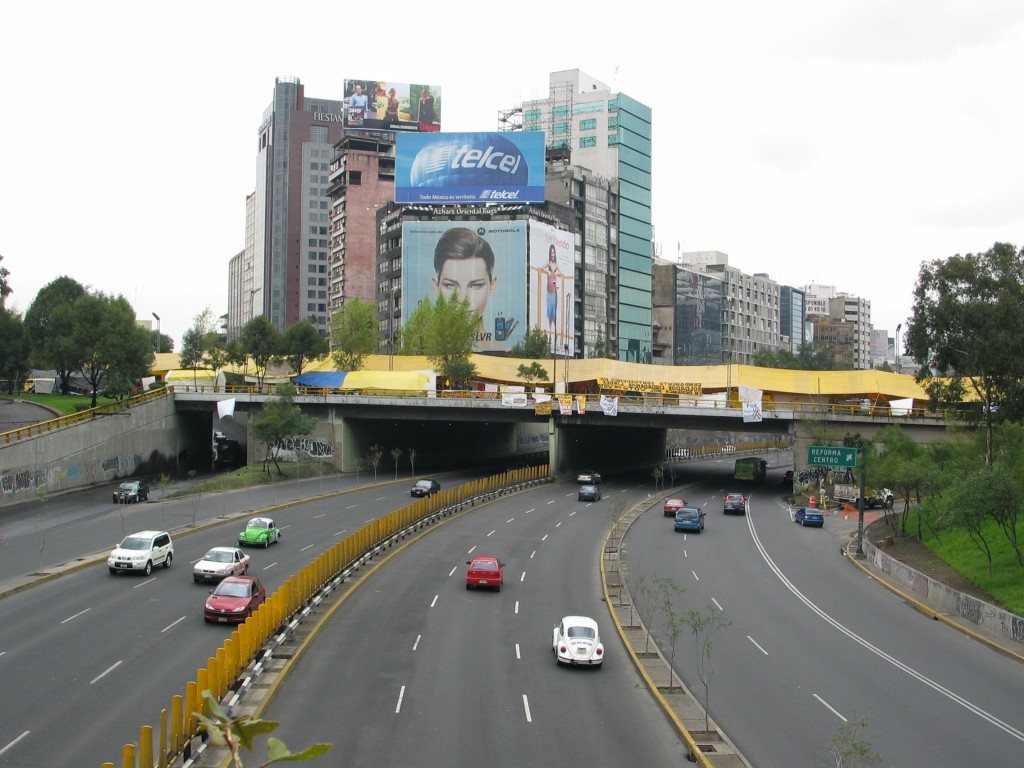
Not long after though, his wife left him with their children and his father got ill. He left to visit his father, and within two months the father died. He had no money to return to the USA and so he was caught in Nayarit. Once again, Salvador felt everything was going against him, and the only thing that would support him was his believe that he would be rewarded in the afterworld.
However, only another two months later, his daugthers suddenly came by visiting him their mother had decided to move to the Mexican border state of Sonora and had come by to let their children see their father. At the same time the Mexican presidential elections came up, and when they found out Salvador was back home, they contacted him: ’We have lots of work,’ they told me.
During the election campaign Salvador was then working as an agitator, a talker and a fighter [for AMLO in Nayarit telling] why it’s good for poor people. And after the elections he has been one of those cooperating on building up the Niyarit part of the camp in Mexico. It’s only our spirit we have to fight and it’s a physical sacrifice; we don’t get money for it, Salvador explains the economics of the camp, people from all over the city bring in the clothing and food to the camp we live on. But when you see me give money for a cola, that is money I earn on tips when giving out the newspaper.
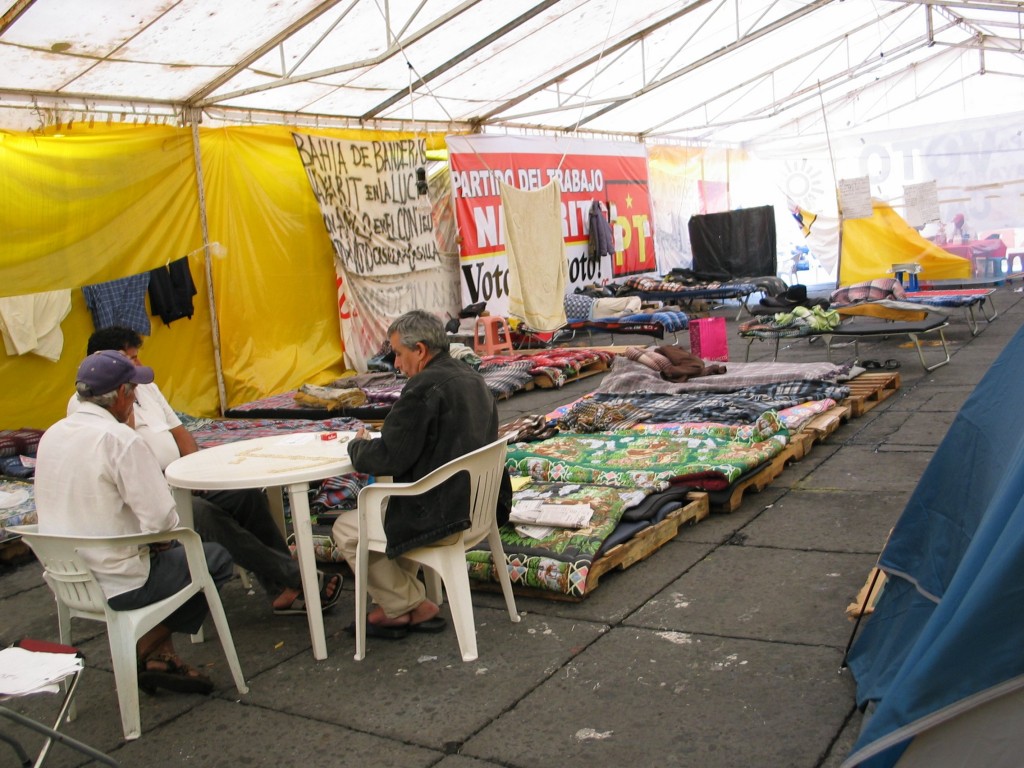
So what will you be doing after all this is over?
Hmm… well see here [in Mexico city] you see people with suits and papers walking around. They work. It is different in Nayarit; there is no work there. For me there is either a job with PRD or I have to go back to the Unites States.
Salvador expects the camp to last no longer than until the national democratic convention, while others believe it might last all the way until the first of December, when Calderon with all likelihood will be inaugorated as president. Maybe all this will start again, Salvador looks hopeful, in six years [during the next presidential elections].
